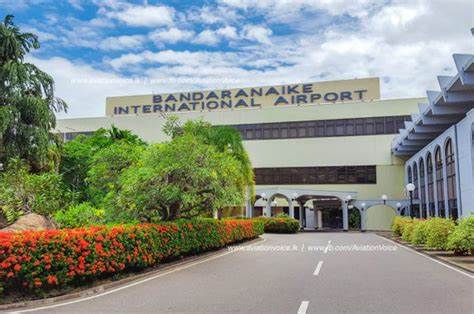
Flawed Airport Tender Process Exposes Cracks in Government’s Anti-Corruption Pledge
- CNL Reporter
- April 22, 2025
- Political
- Airport
- 0 Comments
News of the Day
The Phase II expansion of the Bandaranaike International Airport (BIA) has plunged into controversy following serious allegations of corruption and legal irregularities involving the Sojitz – Larsen & Toubro (L&T) consortium. This development not only questions the legitimacy of the bidding process but also casts doubt on the effectiveness of the government’s anti-corruption promises.
A critical piece of evidence fueling the controversy is a letter from Welcome Hotels, a subsidiary of the ITC Group in India, directed at L&T. The letter accuses the Indian construction company of unprofessional behavior, stating that it abruptly withdrew from a significant hospitality development project mid-execution. This sudden departure allegedly inflicted lasting reputational and financial harm on the hotel group. The incident raises fears about L&T’s reliability and accountability, especially when entrusted with crucial national infrastructure like an international airport terminal.
The situation worsened with a second major revelation: the consortium’s submission included a Power of Attorney (POA) document that had not been attested by a local registrar—a clear and compulsory legal requirement under Sri Lankan procurement laws. This is not a minor oversight; POA attestation is vital to validate the legitimacy of a bidding entity. Historically, similar technical disqualifications have led to outright bid rejection. However, the Sojitz – L&T consortium appears to be progressing in the process, reportedly aided by insiders within the Technical Evaluation Committee (TEC) and airport authorities.
Industry experts argue that overlooking such a critical violation compromises the integrity of the procurement process. If exceptions are made for influential bidders, it could set a dangerous precedent, allowing companies to sidestep legal requirements with the backing of powerful allies. Such a move not only violates procurement norms but also threatens fair competition and national credibility.
Chairman of the TEC, Hasitha Karunaratne, declined to comment when contacted by The Sunday Times Business, stating that the process was conducted in line with government regulations. His silence has only intensified public concern over transparency and fairness.
Critics say the government’s credibility is now at stake. If authorities allow a consortium to proceed despite submitting a legally non-compliant bid and having a history of project abandonment, it would reflect a serious failure in governance and a betrayal of public trust. Reputed project consultants and construction sector leaders stress that this is a defining moment for Sri Lanka’s commitment to anti-corruption. Ignoring due process in favor of convenience or influence would damage investor confidence and international reputation.
As the spotlight remains fixed on the TEC and government response, this case may well become a benchmark for how seriously Sri Lanka upholds procurement laws and fights systemic corruption.

